I begin with the name of Allah, the Kind the Caring.
Question
What do the scholars of Islam say about the question of the moonsighting in Britain? It has been a topic of heated discussion amongst British Muslims since the 1970s. A group of Sunni scholars and Masajid are following the Astronomical calculations method for the beginning of Ramadhan and celebrating Eid. What is the evidence from Shariah for the validity of accepting astronomical calculations?
Kashef Saleem Nottingham
Answer
This fatwa is atypical, as it presents the fatawa of several prominent contemporary Muftis. The fatwa is still based on the Quran and Sunnah, Arabic etymology, classical canonical legal texts, and opinions of scholars regarding the validity of astronomical calculations for determination of moon sighting.
The mufti of Singapore Shaikh Syed Isa bin Semait issued the first fatwa on this subject in 1974.i He said “the fatwa committee of Singapore concluded that the beginning of Ramadan could be determined through astronomical calculations. This conclusion rested upon the verses in Surah Yunus 5 and Surah Al Rahman 5. Which asserted that the orbits of the moon, sun and other celestial bodies adhered to the calculations of Allah.ii Astronomers, particularly contemporary ones comprehend these calculations and the advanced scientific instruments have validated the accuracy of astronomical calculations. Therefore, the fatwa committee acknowledged that past scholars had reservations about astronomy due to the unavailability of sophisticated tools during their time and were unsure about the precision of the calculations.”1 the reason the fatwa committee of Singapore took this action was in their own words “the mufti noticed how the uncertainty of the dates in our Islamic calendar lead to serious difficulties in the lives of Muslims in Singapore.”
The Former Grand Mufti of Egypt, Shaikh Ali Jumma gave a fatwa in 2011 in regards to this question he said “After a careful reading of the issues raised in the aforementioned question, and consulting specialists in astronomy at the National Institute for Astronomical and Geophysical Research, we report the following: The first issue related to the consideration of astronomical calculation is: we consider them one of the means of proving the appearance of the crescent. This is indicated by the Quran and authentic Ahadith. The Sunnah allows for considering the astronomical calculation, so most scholars consider it proper, particularly when the visual sighting is not possible. The astronomical calculation is definitive, whilst the visual sighting can be wrong sometimes. The principle is the definitive takes precedence over the speculative.”
Shaikh-ul-Islam Professor Tahir-ul-Qadri gave a similar fatwa, he said: “My position is that the sighting should not be limited to seeing with the eye or the telescope. If knowledge comes from modern science, then this is equivalent to sighting and does not oppose the Hadith. Furthermore, we are not doing Ijtihad but taking the meaning of the Prophet’s words. He argues that ruyat or sighting mentioned in the Hadith doesn’t just mean seeing with eye but refers to gaining knowledge. He quotes Raghib Isfahani the famous Lexicographer of the Quran, who argues that ruyat has four meanings:
- Ruyat is seeing with the eye or gaining knowledge through any of the five senses
- Ruyat means "judgement based on intelligence", that is driven by mental process and can be unrelated to the senses. That’s why calculations, theology, scientific analysis, etc. are sources of valid knowledge. Through them we understand, know, and establish concepts. Just as seeing with the eyes is the true meaning of ruyat, in the same way, seeing through the knowledge of intellect and mind is 100% meaning of ruyat. This is neither ijtihad nor a new meaning of ruyat
- Ruyat means thinking, like scientific research.
- Ruyat refers to rawyat with the help of intellect, to know with the help of reason, whatever knowledge we talk about today, knowledge of divine knowledge, it is ruyat.
In conclusion gaining of firm knowledge is called ruyat. Jawahir al-Qamoos and Lisan al Arab are also in agreement with this the meaning of ruyat.
Prof Tahir-ul-Qadri boldly said “there can be no unity on moonsighting until we all agree to accept the validity of astronomical calculation.”2
Mufti Saif ur-Rahman (d. 2021) was asked by Pir Syed Maruf Hussain shah of Bradford in April 1993 to explain how we can begin the month in UK where the sky is cloudy most of the time. He wrote a detailed fatwa on the subject. You can read the full Urdu fatwa on… The erudite Mufti sahib said “The third method is astronomical calculations for beginning Ramadhan and celebrating Eid. If the first two methods are not possible (sighting the moon due to cloud or completing 30 days of the month) follow the third option: when expert astronomers say that the crescent would be visible if it was not cloudy. This method is rational and close to the Shariah.” He concluded “in these three cases, the first is a direct method of seeing, whilst the latter two are indirect methods of sighting. We mustn't deviate from these, like those who use birth of the moon. The third method is regarded by some scholars as an interpretation of the Prophetic command “Faqdiru lahu” ie. Calculate if you can’t see it.” This fatwa was signed by dozens of Sunni Barelvi Scholars, including members of the current Sunni Ruyat Board.
-Issued by British Fatwa Council, Nottingham
Pirzada Imdad Hussain, the commentator of the Quran and Bukhari is an erudite and respectable Sunni scholar in Britain, in his commentary on Bukhari he presented a long treatise on the hadith about the sighting of the moon (Imdad-ul Bukhari vol 3:526-50). He believes that “if we can accept the moon that is seen with the aid of telescope then a similar case can be made for accepting the prediction of the observatory. People have landed on the moon; therefore, they precisely know its location so denying their calculation is not an easy matter.” Pirzada sahib Said, “nowadays the observatories are so advanced that they can forecast many years ahead where the moon would be. These findings of the observatory are presently available on the Internet. Therefore, there is no issue in relying on the observatory since our difficulty has been solved. This was the moon of the first date of the moon which we couldn't see because of the clouds but the observatory has made it possible… on page 531 he concludes “in brief, if the scholars in the light of Shariah can find the permissibility of making announcement for Ramadan and Eid, this will make things easy for the British situation. And even if the Saudis reject the scientific observations but the Crescent is present on the Saudi horizon on the 1st day of the month then in Britain people can celebrate according to the Saudi announcement.”
Mufti Dr Shawky Ibrahim Allam, the current grand Mufti of Egypt wrote a fatwa in in 2015 regard the seeing of the crescent moon. He said: “It is obligatory for all the people of a country to follow their imam in seeing the crescent or not. The sighting may differ from one country to another, provided that the sighting is possible according to the astronomical calculation”.
Muhammad Shaukat Odeh3 wrote a research paper regarding the crescent of Ramadan and the difference between astronomical calculation and sighting the moon with the eye: Some jurists permitted the adoption of astronomical calculation in negation only. This is in the sense that if someone testifies to seeing the crescent, and astronomical calculations indicate that seeing the crescent is not possible, then the testification of seeing the crescent will not be accepted. Among the most famous of those who held this opinion was Taqi Ad-Din As-Subki, who was one of the great Shafi’i jurists in the first half of the eighth century AH. As-Subki mentioned in his fatawa if the calculation denies the possibility of seeing the cresecent, it is obligatory for the judge to reject the testimony of the witnesses, he said: “Because the calculation is definitive, whilst the testimony and the news are speculative. The speculative can not oppose the definitive, let alone precede it.”
Some jurists permitted the adoption of astronomical calculation in negation and affirmation; Supporters of this opinion have increased from those of the previous opinion that if astronomical calculations indicate the presence of the moon after sunset in a position that allows it to be seen as a crescent; It is taken by astronomical calculations, and the next day is the first day of the Hijri month without requiring it to be seen with the naked eye. The most famous is Mutrif bin Abdullah, a senior Shafi’ scholar of the third century AH, and Ibn Qutayba al-Dinuri. Among the contemporary is Sheikh Ahmed Shakir, Sheikh Mustafa Al-Zarqa, and Dr Yusuf Al-Qaradawi (Al-Qudah 1999)
Conclusion
These fatawa from eminent scholars provide evidence that astronomical data is superior to the naked eye due to certainty of the moon being present. This is true for countries in the northern hemisphere like the UK, where the possibility of seeing the crescent is rare. As stated by Imam As-Subki the moonsighting with the naked eye is speculative but the astronomical data is definitive. We therefore recommend that in the UK we adopt astronomical data as the primary method of moonsighting for determining the Islamic month.
And Allah knows best.
This Fatwa is written by British Fatwa Council and endorsed by
Allama Ghualam Rabbani Afghani, Chairman Faizan E Islam London
Allama Mufti Misbahal Malik, Chairman …
Allama Rasool Bakhsh Saeedi, Birmingham
Mufti Faiz Rasool, Bristol
Mufti Hassan Raza, Bradford
Allama Hassan Rabbani Imam Zia Ul Quran Glasgow,
Allama…
3 Muhammad Shaukat Odeh is an astronomer and researcher, a member of the International Astronomical Union. He is interested in the topics of calculating prayer times, seeing the crescent, monitoring meteors, … He is the director of the International Astronomy Centre and a founding member of the Arab Union for Astronomy and Space Sciences. Wikipedia)
i the office of mufti of Singapore, MUIS recently published the fatwa with very useful notes and explanation of the basis of using astronomical calculations. The booklet is cold “Singapore approached me calendar.”
ii Surat Yunus: 5 “He created the sun with its radiant glow and the moon its reflected light, and precisely determined its phases, so that you might calculate the passing years and keep time. Allah did not create all that except for a clear purpose, to explain the signs of creation for people who have knowledge.” And Surat Al Rahman: 5, “The sun and the moon have exactly measured orbits.” (The majestic Quran) and according to MAS Halim “the sun and the moon follow their calculated courses.” And according to The clear Quran by Khattab “the sun and the moon travel with precision.”
 THE UK AND EUROPE HILAL FORUM
THE UK AND EUROPE HILAL FORUM



Add new comment